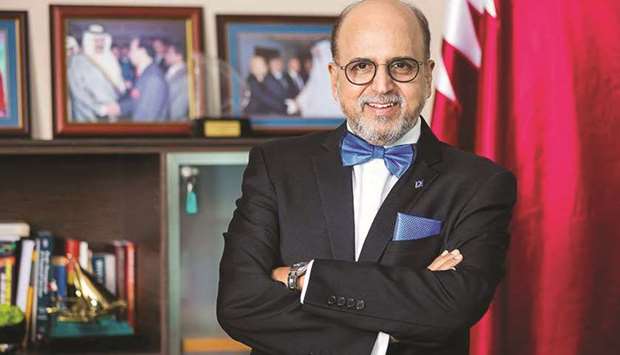With strong exports, positive economic outlook, and natural gas markets unaffected by the economic blockade, growth for Qatar remains sustainable, according to a senior Doha Bank official.
Speaking at the Qatari bank’s joint reception held recently on the sidelines of the World Bank IMF Annual Meeting, Doha Bank CEO Dr R Seetharaman provided insight on Qatar’s economy.
“Qatar has not affected natural gas markets on account of the economic blockade, as Qatar’s exports have continued. The IMF in October 2017 had revised Qatar’s economy growth to 3.1% in 2018 from its April 2017 forecast of 2.84%.
“Qatar’s banking sector had witnessed lending growth close to 7% year-to-date till August 2017, the government sector, real estate, and services sector were the key drivers of growth. The deposit growth was close to 9% YTD till August 2017. Overall Qatar’s growth is sustainable,” Setharaman said.
He also said Qatar will raise liquefied natural gas (LNG) production by 30% to 100mtpa within five to seven years after lifting a moratorium on gas development earlier this year.
“I witnessed participation relating to global economic outlook, the future of globalisation, rise in sovereign debt vulnerabilities, systemic risk, and macro prudential testing in banking and trade development linkages at the IMF meeting,” Seetharaman pointed out.
He said growth prospects for emerging and developing economies are marked up by 0.1 percentage point in 2017 and 2018 relative to April 2017 to 4.6% and 4.9%, respectively primarily owing to a stronger growth projection for China.
Among emerging market and developing economies, higher domestic demand in China and continued recovery in key emerging market economies supported growth in the first half of 2017, Seetharaman said.
In India, he said growth momentum slowed, reflecting the lingering impact of the authorities’ currency exchange initiative, as well as uncertainty related to the mid-year introduction of the country-wide Goods and Services Tax.
“Higher external demand boosted growth in other emerging market economies in East Asia. In Brazil, strong export performance and a diminished pace of contraction in domestic demand allowed the economy to return to positive growth in the first quarter of 2017, after eight quarters of decline.
Recovering domestic and external demand supported rebounding growth in Russia and Turkey,” Seetharaman said.
He said global upswing in economic activity is strengthening. Global growth, which in 2016 was the weakest since the global financial crisis at 3.2%, is projected to rise to 3.6% in 2017 and 3.7% in 2018.
“However the recovery is not complete. While the baseline outlook is strengthening, growth remains weak in many countries, and inflation is below target in most advanced economies,” Seetharaman said.

Seetharaman: Economic blockade has no impact.
